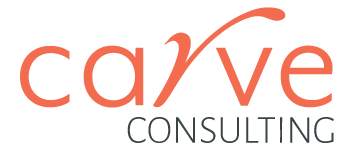Many people dream of change, but never go further than looking at job ads. To create real change you must look at the link between your job, identity and security.
Key takeaways
- Identity and security are often tied to our current work, and are two common reasons why our plans to change get derailed.
- To move forward, it can be necessary to readjust what your attachments and expectations.
- Time and divergent experience can help improve your resilience to change as well as replenish self-confidence and creativity.
There are many people who dream of a career change, but not everyone makes it happen.
The desire for change often comes upon us at a time when we are stressed, under pressure, and tired. Sometimes, the change doesn’t have to be drastic – career transitions can take many different forms, particularly if you’re in mid-to-late career. It might be that after a break, you realise that you’re happy where you are, but a small change to how you structure your work week might be enough. Or you’re happy with the nature of your work, but it’s time to move to another company.
However, at other times, you could be in need of a bigger change. This is where it gets difficult – because changing what your working life looks like is not easy. In particular, once we reach mid-to-late career, it may be entwined with our identity, being more often attached to our lifestyle, job title, employer, and income and may be at a life stage where we look for security.
Researchers Robert Kegan and Lisa Lahey coined a term to describe this called “immunity to change”. They posit that change often fails not because of skillset, but our mindset.
So how do we go about unlocking this mindset change?
Recognising barriers
Often, people start this process by looking at job ads, which is not always the best approach. A job ad can be demotivating, as they are full of criteria – and the danger is if you’re already questioning your abilities, you can look at that list of attributes and start to discount yourself from being able to seek new opportunities. Also, remember that a jobs board is not a full reflection of the job market, as it only contains the positions that companies couldn’t fill through internal promotions and referrals. They’re not a reflection of what is truly possible.
Instead, try understanding the nature of change, and the reasons that it so difficult, then taking meaningful steps to make it happen.
There are perfectly sound and well-researched reasons why change is so hard to implement. These are discussed in Herminia Ibarra’s book, Working Identity: Unconventional Strategies for Reinventing Your Career, based on her in-depth research on professionals and managers in transition. She says change presents a loss of both identity and structural certainty.
Let’s look at identity first – something that inevitably becomes tied up with the work we do, our occupation and sometimes the company we work for. If you meet someone for the first time and they ask you about yourself, and the first thing you say is ‘I’m an executive at company x’, then that’s a good indicator of how tightly linked your identity is to that idea of yourself. Not only that, but if you tend to socialise with others within your company or similar occupation, this will also reaffirm that identity. And a sense of identity becomes more pronounced if you’re in mid-to-late career, and most likely have been assuming this persona for even longer.
For example, I was talking to a connection recently about her experience of a career change. She was a journalist, who’d started out as a cadet and worked her way up. Once the digital age changed the print media landscape, she knew she wanted to pivot to a different field. What was stopping her was identity. She’d been a journalist all her life, and many of her friends were journalists too. When she met new people, they’d always be interested in her job and ask her lots of questions.
However, once she was able to understand this feeling, and make a conscious effort to redefine her identity, she was able to make change for the better, forging a more stable and rewarding career as a commercial content writer. This is equally true no matter what field you work in. Change means redefining your identity and trying to become more flexible around what you’re attached to. Ask yourself: is this attachment healthy? Or is it holding me back?
Facing structural uncertainty
Alongside identity comes a need for structural certainty. An established career brings certainty, and so it’s normal to feel uncomfortable exploring different options. Think back to the journalist example – going from cadet to journalist to editor is a career path with structural certainty. Stepping out of it can be daunting.
Again, this is a particularly acute barrier when you’re mid to late career, as there is no defined pathway, and you have your own specific circumstances and life phase to take into account. Plus, there may not be a role model or a precedent to follow.
Of course, structural certainty is a valid concern – and the reality is that economics might be a consideration in your options and timing. For this reason, you’ll possibly get pushback from family and friends who wouldn’t take a similar risk themselves.
How you overcome your desire for structural certainty depends on your circumstances. Sometimes, it can be possible to stay where you are and take small, considered steps towards your next career. However, other times it might be that you simply have to step away from what you know in order to experience something new, discover opportunities and test ideas.
In fact, Ibarra’s research argues that while common wisdom holds that we must first know what we want to do before we can act, she says knowing is more often the result of doing and experimenting.
Start with first things first
If you’re thinking about making a change, and it sounds overwhelming, then remember there’s ways to lay the groundwork now for future change.
Firstly, try taking a break to give yourself the opportunity to recharge as well as allow space for divergent thinking. You’ll find that your resilience in the face of potential change is reduced when you are exhausted. A break will help replenish your creativity and self-confidence.
From there, some actions you can take are:
Expand your current network. Seek out conversations that are beyond your normal. Conversations with people outside of your normal group can open your eyes to different ways of working and thinking that show a different world view, and help you see other possibilities.
Set an intended timeframe but avoid hard goals. Accept that any change will likely take longer than you hoped or intended, so be flexible. Set your intention but don’t set a hard deadline. There are too many factors that are out of your control and setting a fixed expectation can put pressure on your decisions and potential paths.
Find your beginner’s mindset. While having confidence in the experience you do have, have the courage to be open to opportunities to learn new skills and undertake fresh experiences. You may discover you have more transferable knowledge than you imagined.
Manage your finances. If economic necessity is a driver behind maintaining the status quo, then this is a good way to help. Financial management can be difficult for some, but there’s help available in the form of courses, coaching, or outsourcing to a professional. We may also have a rigid belief around what we need to earn to support our lives. A good question to ask is “What percentage cut to my salary would make it worth being happy?”
Change is hard, and can be for very good reasons. Think about how you can shift your identity to be independent of your current work, recognise where the fear and uncertainty may be rooted and learn how to become resilient to uncertainty.

